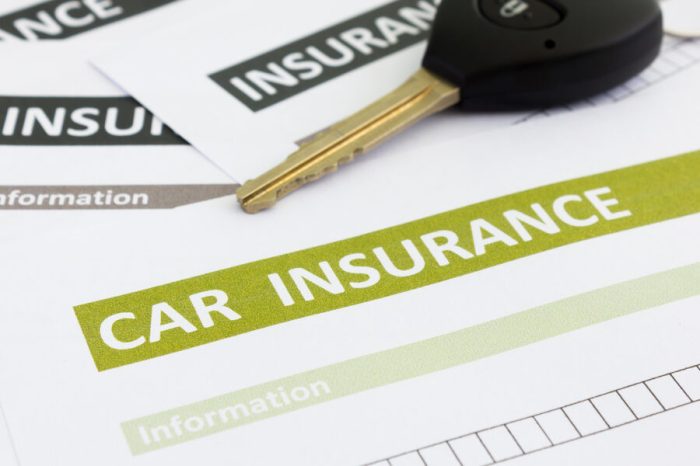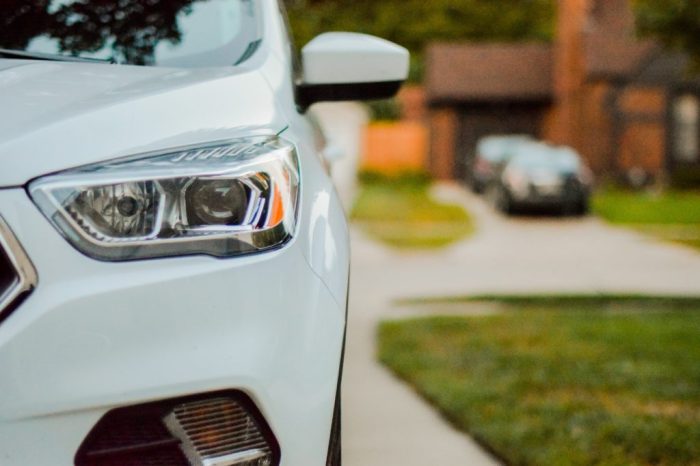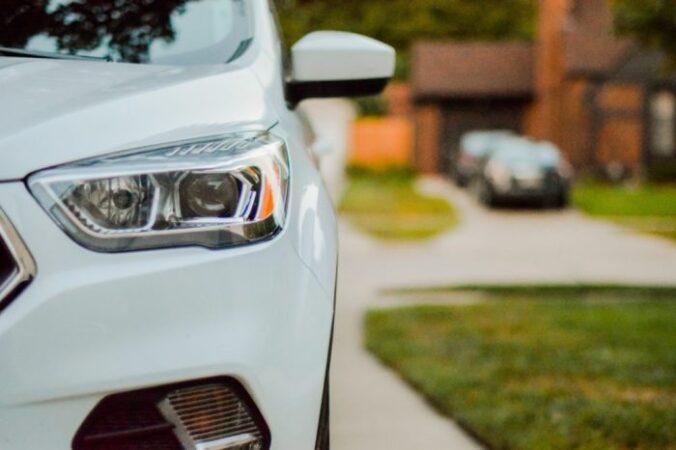
Can I insure a car that’s not in my name? This question arises in various situations, from borrowing a friend’s car to needing coverage for a company vehicle. While it might seem straightforward, insuring a car not in your name involves navigating legal and insurance complexities. This guide explores the options, factors, and legal considerations surrounding insuring a vehicle you don’t own.
Understanding the intricacies of car insurance ownership is crucial, especially when it comes to insuring a car not in your name. Legal implications, insurance options, and cost-influencing factors all play a significant role. This guide delves into these aspects, providing clarity and insights into the process of insuring a car you don’t own.
Understanding Car Insurance Ownership
Car insurance and car ownership are intrinsically linked. Understanding this relationship is crucial for ensuring you have the right coverage and for navigating the legal aspects of insuring a vehicle.
Legal Implications of Insuring a Car Not in Your Name
It is generally not legal to insure a car that is not in your name. Insurance policies are designed to protect the legal owner of the vehicle. Attempting to insure a car that you do not own could result in several legal consequences, including:
- Invalidation of the insurance policy: If the insurance company discovers that you are insuring a car not in your name, they could declare the policy void. This means you would not be covered in the event of an accident or other incident.
- Denial of claims: Even if you have paid premiums, your claims could be denied if the insurance company determines that the insured vehicle is not in your name.
- Legal penalties: In some jurisdictions, attempting to insure a car not in your name could result in fines or other legal penalties.
Common Scenarios Where Someone Might Need to Insure a Car Not in Their Name
There are certain situations where someone might need to insure a car that is not in their name. These situations typically involve temporary or short-term arrangements:
- Borrowing a car from a family member or friend: If you are borrowing a car for a short period, you may need to be added to the owner’s insurance policy or obtain temporary insurance coverage.
- Driving a company car: If you are driving a car provided by your employer, you may be covered under the company’s insurance policy, but it is important to confirm the details of the coverage.
- Renting a car: When you rent a car, you are typically covered by the rental company’s insurance policy. However, it is essential to review the terms of the rental agreement and consider purchasing additional coverage, such as collision damage waiver (CDW).
Insurance Options for Cars Not in Your Name

If you’re planning to drive a car that’s not registered in your name, you’ll need to secure appropriate insurance coverage. There are several insurance options available, each with its own set of benefits, drawbacks, and requirements.
Temporary Car Insurance
Temporary car insurance, also known as short-term car insurance, provides coverage for a specific period, typically ranging from a few days to a few months. This option is ideal for situations where you need temporary coverage, such as:
* Borrowing a car for a short trip: You might need temporary insurance to cover a weekend getaway or a short vacation.
* Driving a rental car: Many rental car companies require you to have temporary insurance.
* Covering a gap between policies: If you’re switching insurance providers, temporary insurance can bridge the gap between your existing and new policies.
Benefits of Temporary Car Insurance
* Flexibility: Temporary car insurance offers flexibility as you can choose the duration of coverage that suits your needs.
* Cost-effective: It’s often more affordable than a full year’s worth of insurance, especially for short-term needs.
* Easy to obtain: Many insurers offer temporary car insurance online, making it convenient to obtain coverage quickly.
Drawbacks of Temporary Car Insurance
* Limited coverage: Temporary car insurance may have limited coverage compared to a full-year policy. It’s essential to carefully review the policy documents to understand the specific coverage provided.
* Higher premiums: While it’s cheaper than a full-year policy, temporary insurance may have higher premiums per day than a regular policy.
* May not be available for all situations: Some insurers may not offer temporary car insurance for all types of vehicles or driving situations.
Named Driver Insurance
Named driver insurance, also known as additional driver insurance, allows you to add another person to your existing car insurance policy. This option is suitable if you frequently drive a car that’s not registered in your name, such as:
* Driving a family member’s car: You might need named driver insurance to drive your spouse’s or parent’s car regularly.
* Sharing a car with a friend or roommate: If you share a car with someone, you can add them to your policy as a named driver.
Benefits of Named Driver Insurance
* Comprehensive coverage: Named driver insurance provides comprehensive coverage for the named driver, including third-party liability, personal injury, and property damage.
* Convenience: It’s relatively easy to add a named driver to your existing policy, often with minimal paperwork.
* Cost-effective: Named driver insurance is typically cheaper than obtaining a separate policy for the car.
Drawbacks of Named Driver Insurance
* Limited to specific individuals: Named driver insurance only covers the named driver(s) on the policy.
* May increase premiums: Adding a named driver to your policy may increase your insurance premiums, depending on the driver’s age, driving history, and other factors.
* May not be available for all situations: Some insurers may not offer named driver insurance for all types of vehicles or driving situations.
Joint Ownership Insurance
Joint ownership insurance is an option where two or more individuals share ownership of a vehicle and are jointly insured. This option is suitable if you’re buying a car with another person or inheriting a car from a family member.
Benefits of Joint Ownership Insurance
* Shared responsibility: Both owners are responsible for the car’s insurance and share the cost.
* Comprehensive coverage: Joint ownership insurance provides comprehensive coverage for all named owners, including third-party liability, personal injury, and property damage.
* Flexibility: Both owners have access to the car and can use it without restrictions.
Drawbacks of Joint Ownership Insurance
* May increase premiums: Adding another owner to the policy may increase insurance premiums, depending on their driving history and other factors.
* Shared liability: Both owners are equally liable for any accidents or claims filed against the car.
* Potential for disputes: There may be potential for disputes between owners regarding insurance payments or other matters.
Factors Influencing Insurance Cost

When you insure a car that’s not in your name, several factors influence the insurance premium you’ll pay. Understanding these factors can help you make informed decisions and potentially save money on your insurance.
Driver’s Age and Driving History
The driver’s age and driving history are crucial factors in determining insurance premiums. Younger drivers, especially those with limited driving experience, are statistically more likely to be involved in accidents. This increased risk is reflected in higher insurance premiums. Conversely, older drivers with clean driving records generally pay lower premiums due to their lower risk profile.
Vehicle Type
The type of vehicle you’re insuring also plays a significant role in the cost of insurance. Some vehicles are considered more expensive to repair or replace, and they may also be more prone to theft or accidents. This translates into higher insurance premiums. For example, sports cars or luxury vehicles often have higher insurance premiums compared to basic sedans or hatchbacks.
Location
Where you live can impact the cost of car insurance. Areas with higher crime rates or more traffic congestion generally have higher insurance premiums. This is because insurance companies consider these factors to be associated with an increased risk of accidents or theft.
Cost-Saving Strategies
There are several cost-saving strategies you can employ when insuring a car not in your name:
- Maintain a Clean Driving Record: Avoid traffic violations and accidents, as these can significantly increase your insurance premiums.
- Increase Your Deductible: A higher deductible means you’ll pay more out of pocket in the event of a claim, but it can lower your premium.
- Bundle Your Insurance: Combining your car insurance with other policies, such as homeowners or renters insurance, can often result in discounts.
- Shop Around for Quotes: Compare quotes from multiple insurance companies to find the best rates.
- Consider a Usage-Based Insurance Program: Some insurance companies offer programs that track your driving habits and reward safe driving with lower premiums.
Legal Considerations
Insuring a car that’s not in your name involves legal considerations that you must understand. It’s crucial to ensure you meet the legal requirements and avoid potential consequences.
Legal Requirements for Insuring a Car Not in Your Name
It’s essential to understand the legal requirements for insuring a car that’s not in your name. These requirements vary by state and insurance company. However, some common requirements include:
- The owner’s permission to drive the car.
- The owner’s consent to add you to their insurance policy.
- Proof of ownership, such as a vehicle title or registration.
- Proof of residency, such as a driver’s license or utility bill.
- A valid driver’s license.
It’s crucial to confirm these requirements with your insurance company and state’s Department of Motor Vehicles.
Consequences of Driving a Car Without Proper Insurance
Driving a car without proper insurance can have serious consequences. These consequences can include:
- Financial Penalties: You may face fines and penalties for driving without insurance, which can vary depending on your state.
- License Suspension: Your driver’s license may be suspended if you’re caught driving without insurance.
- Impoundment: Your vehicle may be impounded until you provide proof of insurance.
- Jail Time: In some states, driving without insurance can result in jail time.
- Increased Insurance Premiums: Even after you obtain insurance, your premiums may be higher due to your previous lapse in coverage.
- Financial Responsibility: If you cause an accident while driving without insurance, you’ll be held financially responsible for any damages or injuries, even if the accident was not your fault. This could lead to significant financial hardship.
Examples of Legal Cases Related to Insuring Cars Not in the Owner’s Name
- State v. Jones (2018): In this case, the defendant was convicted of driving without insurance after being involved in an accident. The court ruled that the defendant was responsible for ensuring that the car he was driving was properly insured, regardless of whether the car was in his name.
- Smith v. Insurance Company (2020): In this case, the plaintiff was injured in an accident caused by a driver who was not insured. The court ruled that the plaintiff could sue the owner of the vehicle for damages, even though the owner was not driving the car at the time of the accident.
These cases illustrate the importance of understanding the legal requirements for insuring a car not in your name and the potential consequences of driving without proper insurance.
Practical Tips and Advice: Can I Insure A Car That’s Not In My Name

Securing insurance for a car not in your name can be a bit more complex than insuring a car you own. However, with some practical tips and strategies, you can navigate the process efficiently and obtain the coverage you need. This section delves into helpful advice for communicating with insurance providers and steps to ensure a smooth and efficient insurance process.
Communicating with Insurance Providers
Effective communication with insurance providers is crucial for obtaining the right coverage and avoiding misunderstandings.
- Be transparent and upfront about the car’s ownership: Clearly explain the situation, including the car’s owner, your relationship to them, and the purpose of needing insurance. This transparency will help the insurer assess the risk and provide the appropriate coverage.
- Provide all necessary documentation: Be prepared to provide the insurance company with proof of ownership, driver’s license, and any other documents they might request. This includes the vehicle registration, proof of purchase, and any agreements related to the car’s use.
- Ask clarifying questions: Don’t hesitate to ask questions about the insurance policy’s terms and conditions, especially regarding coverage, premiums, and exclusions. Understanding the details of the policy will ensure you’re protected in case of an accident or incident.
- Maintain open communication: Keep the insurance company informed of any changes in your driving habits, the car’s use, or any relevant details that could impact the policy. This proactive communication helps maintain accurate information and avoids potential complications.
Steps for Efficient Insurance Coverage, Can i insure a car that’s not in my name
Following these steps can streamline the process of securing insurance for a car not in your name:
- Shop around for quotes: Compare quotes from multiple insurance providers to find the best rates and coverage options that suit your needs. This competitive approach can help you secure a favorable deal.
- Consider temporary insurance: If you need coverage for a short period, such as for a road trip or a specific event, temporary insurance can be a cost-effective solution. It provides coverage for a limited duration and can be a good option for temporary car usage.
- Check for additional requirements: Some insurance providers might have specific requirements for insuring a car not in your name. These requirements could include additional documentation, proof of residency, or specific driving experience. It’s essential to inquire about these requirements upfront to avoid delays or complications.
- Read the policy carefully: Before finalizing the policy, carefully review the terms and conditions to ensure you understand the coverage, exclusions, and any other relevant details. This will help you avoid surprises or unexpected costs later.
Closing Notes
Insuring a car not in your name requires careful consideration of legal requirements, insurance options, and cost factors. By understanding the intricacies involved, you can navigate the process effectively and secure appropriate coverage. Remember, seeking professional advice from an insurance agent can provide tailored guidance and ensure you’re protected in any situation.
Question & Answer Hub
What happens if I’m caught driving a car without insurance?
Driving a car without insurance is illegal and can result in fines, license suspension, and even imprisonment. You could also face financial responsibility for any accidents you cause.
Can I insure a car I’m leasing?
Yes, you can typically insure a leased car. However, the leasing company might require you to carry specific insurance coverage, including collision and comprehensive coverage.
What if I’m only driving the car occasionally?
If you only drive the car occasionally, you might consider temporary car insurance or named driver insurance, which provides coverage for a limited period or for specific drivers.





